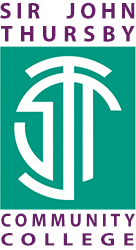Year 7 Physical Education Boys
| Physical Education | |||
| Topic | Gymnastics | ||
| No of lessons | 6-8 | ||
| When is it happening | Term 2 Year 7 | ||
| What will students learn |
Students must develop their ability to perform gymnastic related skills such as travelling, balancing, rolling, jumping, sequencing and low level vaulting. They will also develop upper body strength through press ups, sit ups and performing the plank. Students will develop the knowledge and understanding of how to correctly start and end a routine. Develop an understanding of why body tension is important when performing to make the routine more aesthetically pleasing. Students will develop an understand of how the components of fitness required to be successful at gymnastics can benefit performance in other sports.
|
||
| Key Knowledge that students should know at the end of 'Topic' | This is the knowledge that students will meet for the first time in this topic |
Explore the origin of gymnastics, (The term gymnastics, derived from a Greek word meaning “to exercise naked,” applied in ancient Greece to all exercises practiced in the gymnasium, the place where male athletes did indeed exercise unclothed). Students will develop a deeper understanding by building upon knowledge of the health benefits that gymnastics has physically, mentally and socially. How skills can be learnt and transferred into other sports and everyday life, such as communicating, resilience, strength, flexibility, agility, problem solving and travelling. Students will develop and refine skills related to gymnastics such as balancing, travelling, jumping, rolling, sequencing and low level vaulting. Students/professional athletes performance will also be analysed to improve performance and help influence future routines |
|
| This is knowledge that students may have met before but will need to deepen their understanding |
Students will have knowledge of what components can make up a successful routine (travelling, balancing, jumping, rolling, working at different levels and body tension). Students will have the knowledge to create a routine that demonstrates accurate replication and fluency from one movement to another. Students will have a good knowledge of the skills required to be successful at gymnastics and how these skills can correspond and improve performance in other sports. |
||
| Key Skills that students should be able to demonstrate at the end of 'Topic' | This is the skills that students will meet for the first time in this topic |
Classes will partake in a variety of activities that will focus on travelling, balancing, partner work and sequencing. Plus specific gymnastic skills. Strength training and conditioning to include plank, sit up and modified/full press up. Importance of Warming up and Physical Benefits:· Raises heart rate to allow blood flow to increase to pump efficiently around the body providing oxygen to muscles. Importance of Cooling Down after Physical Activity. Muscle groups in relation to warming up and use in sports. Students will learn how to build and develop a routine ensuring there is is fluency, body tension throughout, working at different levels and demonstrating an ability to perform the above skills professionally. Students will acquire knowledge through participating in practices, watching and performing in demonstrations, using task cards and analysing video footage of other class members and professional athletes. |
|
| This is skills that students may have met before but will need to develop |
Students will develop the ability to hold their own body weight by improving upper body strength, explore various different ways to travel, balance jump, rolling and how to create a sequence. |
||
| Key vocabulary that students should know and understand |
Travel, balance, partner work, sequencing, strength training, conditioning, plank, sit up, modified/full press up. |
||
| The Big Question | Explore the components of fitness that are required to be successful at gymnastics? Discuss how gymnastics requires similar skills to parkour. | ||
|
Key questions that students should be able to answer at the end of the 'Topic'
|
How can you build upper body strength using body weight exercises? | ||
| What are the different ways we can travel? | |||
| How many different ways to jump and land are there? What are they? | |||
| Why is it important to travel at different levels? | |||
| What are the different types of roll that we can use? | |||
| Why is it important to trust your partner when balancing? | |||
| What does fluency mean? | |||
| What is body tension? Why is it important? | |||
| How could you link different movements together to promote fluency? | |||
| What does aesthetically pleasing mean? | |||
| What is Cannon? | |||
| If you do not warm up correctly how will flexibility be effected? | |||
